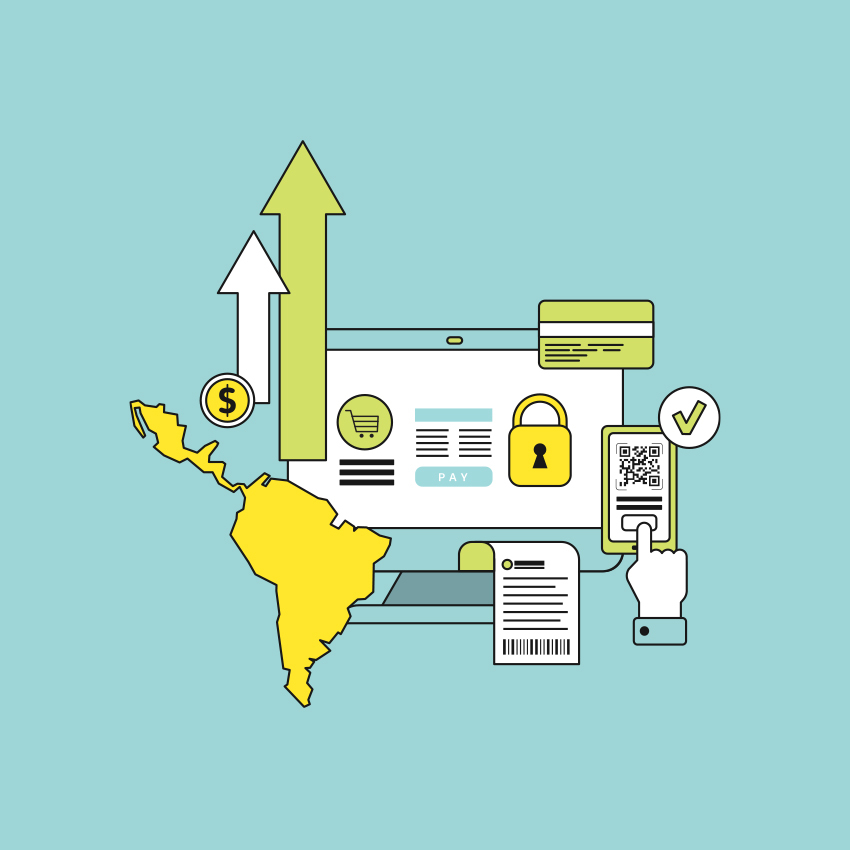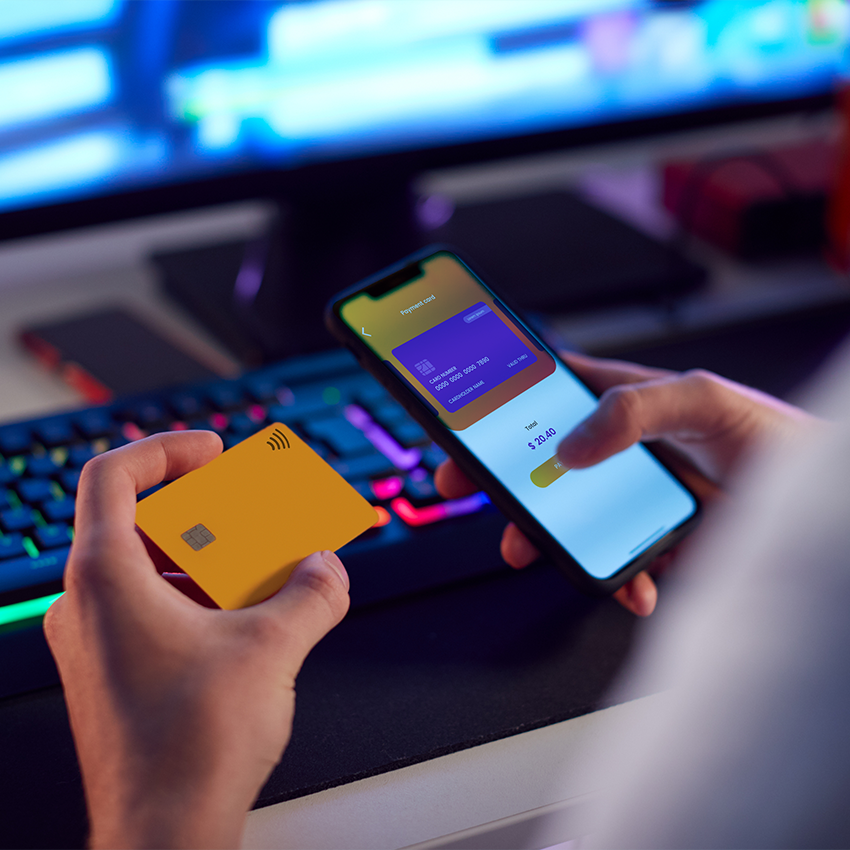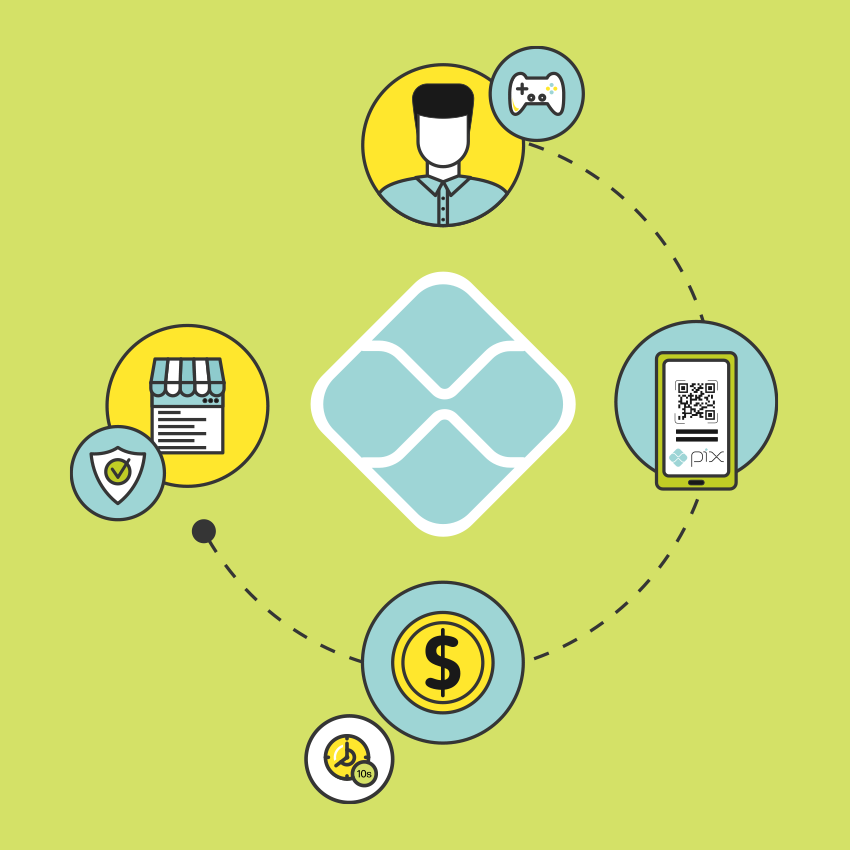As time spent on mobile devices grow, all-in-one apps that help user manage their finance, from banking to shopping and beyond, is the natural next step
The use of cell phones is so natural and already a part of people’s routine that it is hard to realize how much time is spent interacting with it – and it might be even more than you think. According to Statista, in the USA the majority of the population spends between 5 and 6 hours on their cell phones, whether for leisure, study, or work.
This new hyper-connected reality has led companies to rethink the way people deal with finances, and especially payments. As they routinely interact with banking and shopping online and via apps, using the cell phone as means for payments and money transfers came to be seen as the natural next step in the digital transformation in the industry. That’s when e-wallets and, more recently, super apps came into play.
Based on NFC technology, these apps operate seamlessly with regular POS devices normally used with traditional cards, turning the mobile phone into the only thing the customer needs to make purchases, either online or in brick-and-mortar shops. This is an important step forward: as mobile devices play an increasingly important role in the way people interact with shops, banks, and other companies in the digital world, they now will be equally relevant in the physical too.
E-wallets’ role in super-apps
E-wallets have been growing in popularity over the past few years, with apps such as Google Pay and Samsung Pay largely replacing physical credit and debit cards. As for the so-called super apps, they are now being used all over the world, especially in Asia; these apps bring together a range of services and functionalities, such as payment, hiring services, shopping, and more. This union of services maximizes the advantages of mobility and the dynamism of the digital world, capitalizing on the increasingly intense use of mobile devices.
In Brazil, this trend is starting to take root, with some functions such as value transfer via WhatsApp already gaining popularity, although there is not yet a superapp with as many added functions as seen abroad. Companies like Rappi and Magazine Luiza, however, are already planning investments in the area, which should heat up the segment and bring new players soon. Similarly, UOL’s PagBank already has functions for cell phone recharging, vehicle fueling, and shopping, an important step towards establishing a superapp of size in the region. In addition to the aforementioned Samsung Pay and Google Pay e-wallets, these apps are effectively changing the finance game in the region, creating a whole new paradigm for shopping, banking, hiring services, and much more.
The future is super
In practice, super-apps are accentuating the convergence of functions and the connectivity of users to the various service, entertainment, and consumption platforms in the world, which generates more business opportunities and also more competition. In addition, for the Brazilian scenario in particular, the entry into force of Open Banking makes the financial scenario more dynamic and opens space for companies seeking to bring alternatives for payments and services, which is exactly the case with these apps.
5G, which is already starting to operate in several metropolitan regions in the country, also makes the use of online platforms increasingly attractive and easy, with a fluid, robust and stable operation, generating a positive experience that tends to attract more and more users. Further ahead, with the initiatives to create digital universes (the so-called metaverses) coming off the paper and gaining their first real experiences, the use of several unified services on a single platform becomes extremely practical and attractive, which strengthens the position of these applications.
Be ready for anything
With the future knocking at the door, it is important to be prepared and understand how the imminent arrival of these products can affect the game of buying, selling, and paying for services, as well as the interaction between users.
The greater ease for companies to bring their product to their target audience and for consumers to make payments should certainly reduce international barriers and bring new competitors interested in exploring the region’s potential. Payments are a fundamental feature of super-apps, making e-wallets one of the main characters for companies aiming to take their apps to new heights and exploring different ways of engaging with customers.
This means that local companies must be prepared for a new wave of competition, so they must be ready to navigate this new context of more dynamic, agile, and connected sales and payments to win and retain customers who are already immersed in the digital world.





